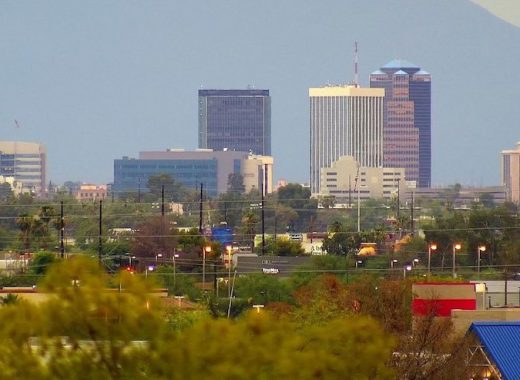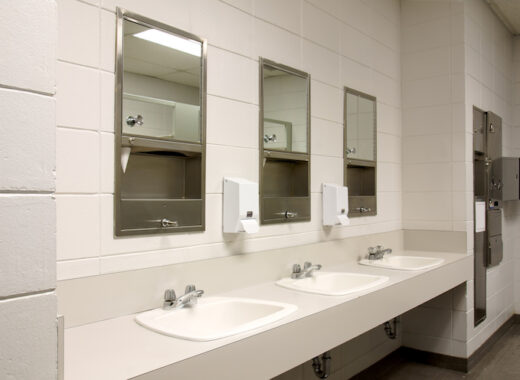Large apartment communities may be the most recognizable symbols of the multihousing industry, but independent rental property owners play a huge part.
According to the U.S. Census, about 70% of rental properties are owned by individual investors, with most managing four units or less.
Mom-and-pop rental owners in Arizona like Mandy Grossman Rustempasic and Rick Vullo say there are many reasons they enjoy the work. A flexible schedule, owning your own business and the chance to meet new friends are a few of the benefits they cite from their respective 26 years and 31 years in the business.
But they say the job comes with serious commitments. Late-night phone calls from residents, emergency appliance repairs and the pressure of mortgage payments are a constant feature.“I’ve spent many, many nights not sleeping, worrying about my tenants” going through tough times, Grossman Rustempasic said.
She poses the same questions when friends ask if they should buy a rental property: “Do you like people? Do you like sticking your hand in the sink when there’s a leak?”
If not, she recommends they find a different way to invest.
An industry that offers freedom and security
Vullo and Grossman Rustempasic both have deeply personal stories about how they got into the rental industry.
Vullo grew up with a single mom and two siblings in a small apartment. He remembers seeing other families lose jobs and then lose their housing, and never wanted to experience that same fate.
“Every first of the month I would remind my mom, ‘Did you pay the rent?’” Vullo, 56, recalled.
Six months after graduating from college, Vullo and his brother had scrimped and saved enough money to buy their first duplex. They rented out the nice half while living in and renovating the other unit that was in bad shape.
“I was willing to bet on myself,” Vullo said. “I have that entrepreneurial gene.”
At his peak, Vullo owned 44 units with 38 mortgages and more than 100 residents. He was working 10 to 12 hours per day. But the job was worth it, he said.
With five young kids at home, Vullo had the flexibility to pick up and drop off his children at school and coach them through every sport they played, from baseball to rugby.
“I really enjoyed that,” he said.
Not only was the freedom to choose when to work important to Vullo, so was the security of being his own boss.
“There’s no other business like it,” Vullo said. “More than anything, it’s going back to how I was brought up. I was always worried about my mom getting fired and getting kicked out of her place. (In real estate) I controlled my own destiny.”
Even though most of his properties are in Tempe and rented to Arizona State University students, Vullo says his careful vetting, strong communication and responsiveness has led to a less than 1% late payment rate.
“When they sign the lease, we talk about the need to have mutual respect,” Vullo said. “When something breaks down, you call me. This is my full-time job. I’m not letting their calls go to voicemail or not returning their calls for four to five days. I want to be Johnny on the spot.
“And what I expect from you is to pay your rent on time,” he said.
In recent years, Vullo has started to slow down, whittling his holdings to six properties so he can spend more time with loved ones and doing other activities he likes.
“I wanted to simplify my life,” he said.
A source of income for new immigrants
Becoming a rental property owner was how Grossman Rustempasic made ends meet as an immigrant to the U.S. She came from South Africa; her husband is from the former Yugoslavia.
“In the ‘80s and ‘90s, it was a way for immigrants to invest and make some money without knowing all the aspects of running a business,” Grossman Rustempasic said. “In those days it was relatively simple: Find a place, fix it up, have some decent people skills, collect the rent and pay your taxes.”
But it wasn’t a quick moneymaker, both she and Vullo said. They each found additional sources of income such as through a spouse’s employment or flipping houses.
“You’ll probably break even, if you’re lucky, over the next 10 or 15 years” on a rental property, Grossman Rustempasic said. “Then you can either sell or start to make some money when you no longer have a mortgage. It’s long-term thinking.”
The job allowed Grossman Rustempasic the opportunity to be with her children before and after school. She also was able to volunteer. She has spent 20 years working with organizations that serve refugees with adult education and housing.
“I did not have to get up everyday and sit in an office. I didn’t have to worry about being fired,” Grossman Rustempasic said. “I did have to worry about paying the mortgages. That was stressful for sure.”
Repairing and renovating each unit is a lot of work, she said. But learning how to fix things herself has been rewarding, and so is seeing the finished product.
“You go in an apartment, it’s really dirty and a window’s been broken. You paint and fix things and put in a new light and shine everything back up again. And it feels great to step back and admire it,” she said. “It’s like art. It’s creative, and it’s fun.”
Among the worst emergencies for any rental owner is an air conditioner breaking during the summer.
“I will do everything I can to get them a portable air conditioner and get it fixed right away. I worry about people who might be not well or have pets or babies,” she said. “My own air conditioner went out for three weeks during the pandemic, and I was less stressed about that than I would have been if it was one of my tenants.”
One of the best parts of her career has been making friends with her residents, Grossman Rustempasic said.
“I have met some of the loveliest people over the last 25 years and had some fabulous tenants, some of whom I am still in touch with,” she said. “They call me again to see if I have open units. A couple of tenants and I have become friends for life.”
There’s just one thing she says she would ask of renters.
“Be nice to your landlord,” she said. “Your landlord is not a monster. We don’t have bags and bags of money all over the house. We’re just human beings raising families and planning for our futures.”








